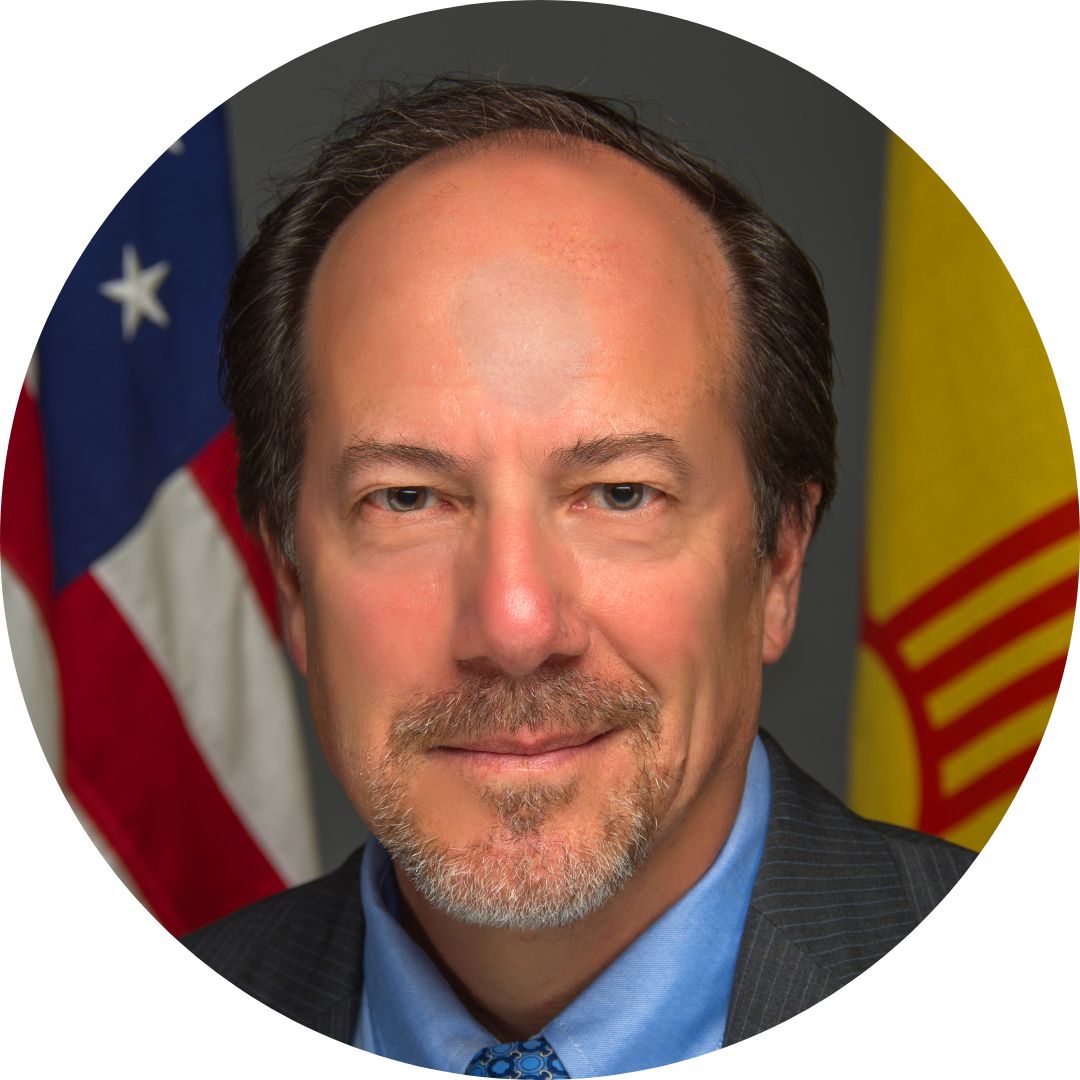Speaker Bios

KEITH WIPKE
Mr. Wipke has been the Laboratory Program Manager for the Fuel Cell and Hydrogen Technologies program at the National Renewable Energy Laboratory for the last 9 years, where he has worked since 1993. The program covers all aspects of hydrogen and fuel cells, from hydrogen production with renewables to end-use applications envisioned in the H2@Scale “bubble-chart.” Prior to this role, Mr. Wipke worked in advanced vehicles for almost 20 years. For almost a decade he led NREL’s participation in the Controlled Hydrogen Fleet and Infrastructure Demonstration and Validation Project (aka the Learning Demo). This technology validation activity was later expanded to evaluate fuel cell technology in other applications. He received his masters degree in mechanical engineering from Stanford University, is NREL’s senior representative at the California Fuel Cell Partnership, sat on the Board of Directors of the Fuel Cell and Hydrogen Energy Association (FCHEA) for 6 years, and actively participates in the Colorado Hydrogen Network.

ALEX KIZER
Alex Kizer is the Senior Vice President of Research and Analysis at the Energy Futures Initiative (EFI). He develops and manages projects on cross-cutting issues related to technology, policy, and innovation in energy sectors at home and abroad. An expert in developing and managing major analytical initiatives, Kizer supports funders and sponsoring organizations with advice on navigating the interaction between technology disruptions and legacy markets and systems.
At EFI, Kizer (pronounced KI-zer) oversees all qualitative and quantitative analysis for EFI reports, including “Optionality, Flexibility & Innovation: Pathways for Deep Decarbonization in California;’’ “Advancing the Landscape of Clean Energy innovation,’’ for Bill Gates’ Breakthrough Energy; “Investing in Natural Gas for Africans,’’ a project sponsored by the Africa50 infrastructure fund; and white papers on blockchain technology applications for energy, an examination of the U.S. nuclear enterprise and the role it plays in national security, studies on large-scale carbon management, and a variety of budgetary analyses.
Kizer brings over fifteen years of experience advising clients at institutions such as Sandia National Laboratories, the National Infrastructure Simulation and Analysis Center, the U.S. Department of Energy, the U.S. Department of Defense, as well as energy companies that operate in the Middle East and Europe.
At EFI, he designs and manages projects that focus on investment strategies for accelerating clean energy innovation, oversees cost-benefit analyses of electric sector cyber security, develops methods for valuing U.S. energy security, and examines techniques for evaluating the emission savings from the at-scale deployment of all clean technologies.
Kizer holds a B.A in Public Policy from Ohio Univeristy and an M.A. In International Security studies from American University.

THOMAS J. STEPHENSON
Thomas Stephenson is a venture capitalist and business manager with 20 years of experience starting, growing and investing in early stage companies in the Southwest United States, with a particular focus on fuel cell, energy and water. Skilled in Entrepreneurship, Strategic Planning, Venture Capital, Strategic Partnerships, and Angel Investing. Co-founder and CEO of Pajarito Powder, LLC; co-founder of Verge Fund; former executive at Austin Technology Incubator/IC2 Institute; board member at boomtime, LLC, Slipstream Ecotech & TruTouch Technologies. Degrees from The University of Texas at Austin (MBA) and Rice University (BA, Physics).

JEFF WHITWORTH
Jeff Whitworth leads the Emerging Fuels Program for Pipeline Research Council International (PRCI). In this role, Jeff focuses on delivering solutions to meet the demands of pipeline transportation during the transition to a renewable energy society while improving process safety performance and operational practices across the pipeline industry.
Prior to joining PRCI in 2021 in a consulting role, Jeff enjoyed a 38 year career in the upstream and midstream energy industry. He spent the last 20 years at Shell Pipeline Company where he led the reliability and integrity program and was responsible for engineering and operations standards that delivered sustainable and safe performance.
His educational background includes a B.S. in Petroleum Engineering and a Masters of Business Administration, both earned from The University of Texas at Austin.

JOHN R. D’ANTONIO JR., P.E.
John D’Antonio is a registered professional engineer in New Mexico with a Bachelor of Science degree in Civil Engineering from the University of New Mexico.
He spent 16 years with the NM Office of the State Engineer and was appointed by 4 different Governors over the past 2 decades. He also served for 22 years with the U.S. Army Corps of Engineers (USACE) working on significant national and regional water issues, as well as supporting Military Construction, International and Interagency Support projects as well as ecosystem, flood protection and other Civil Works projects.
Mr. D’Antonio has a passion for water resources and a keen interest in helping to solve water resource challenges. He leverages his broad local, state, and federal government experience, and decades of trust and relationship building in New Mexico, and many of the states in the western U.S. He has broad experience in Water Rights Administration, Water Policy, Water and Drought Planning, Water Infrastructure and Funding, and additional engineering and policy expertise.
His vast experience in building coalitions with state and local governments, federal agencies, private sector organizations and individuals, and sovereign nations led to negotiating three complex Tribal water right settlements. The settlements resulted in certainty of water rights for Indians and non-Indians and nearly $2 billion of water infrastructure projects. During his tenure as State Engineer, D’Antonio was Secretary of the Interstate Stream Commission, Chairman of the Water Trust Board; Governor’s Water Infrastructure Investment Team; and the Governor’s Drought Task Force. He also served as the New Mexico Commissioner to the Rio Grande, Costilla, and Upper Colorado River Compacts.

DAREN ZIGICH
Daren is currently the Engineering Technology Program Manager at the NM Energy Conservation and Management Division at the NM Energy, Minerals and Natural Resources Department and is the principal investigator for the DOE grant-funded, NM Energy Roadmap Project.
Daren is a licensed professional engineer and has more than 30 years of professional work experience in both the public and private sector. His work history includes a range of experiences from being an engineer in the manned space program to an environmental regulator and multiple years as an engineer in the private energy sector including the fuel ethanol and nuclear power industries.
Daren holds a Bachelor of Aerospace Engineering and Mechanics Degree from the University of Minnesota and a Master of Mechanical Engineering Degree from New Mexico State University.

STACY TIMMONS
Stacy Timmons is an Associate Director of Hydrogeology programs at the state geologic survey – the New Mexico Bureau of Geology and Mineral Resources, in Socorro at New Mexico Tech. As a hydrogeologist working with the Aquifer Mapping Program since 2004, Stacy has worked around the state on hydrologic and geologic research. Her work has ranged from collecting water quality and quantity data, mapping aquifers, and helping to build an understanding of the state’s complex hydrogeology.

DR. ROBERT BALCH
Dr. Robert Balch is the Director of the Petroleum Recovery Research Center located on the campus of New Mexico Tech. During his 25 years at the PRRC he has been principal Investigator on a range of enhanced oil recovery, intelligent systems, and environmental projects, with a focus on developing and applying solutions to problems at many scales using geological, geophysical, and engineering data. Dr. Balch is the Principal Investigator of the Southwest Partnership on Carbon Sequestration, which is currently completing a DOE funded demonstration project where 1,000,000 metric tonnes of anthropogenic CO2 has been injected for combined storage and enhanced oil recovery into a mature waterflood in North Texas. He is also the Principal Investigator for the Carbon Utilization and Storage Partnership, another US DOE initiative, which is actively working with companies to commercialize CO2 Storage projects in the Western US. The CUSP has 16 commercialization projects underway including identifying CO2 storage for a coal to hydrogen power plant conversion, permitting carbon storage for a mid-stream producer in the Permian basin, an iron smelter in Utah, and carbon storage hubs throughout the western USA. In addition, he is project manager for a DOE CarbonSafe 3 project which is identifying 7 million tonnes per year of storage for a coal plant converting to carbon capture in New Mexico.
During the course of his work, he has published more than 50 papers, is a frequent invited speaker, and has presented his research at more than 110 meetings or events. In 2017 he was selected as a Distinguished Lecturer for the Society of Petroleum Engineers on the topic of CO2 storage during enhanced oil recovery. Dr. Balch has served for 6 years on the ISO TC265 world standard for geologic storage of carbon oxides, as a representative for ANSI. Dr. Balch held an appointment as an Oil Conservation Commissioner for the State of New Mexico between June of 2011 and December of 2018.